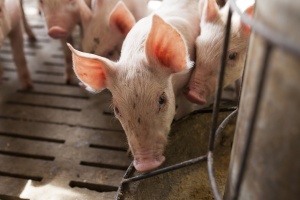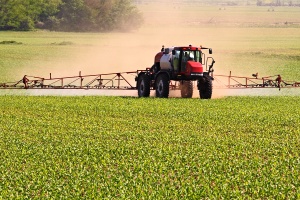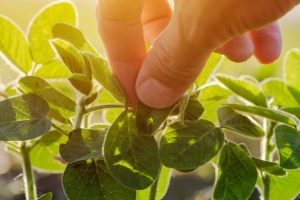Three reasons why pollinators are important for you and your favorite foods
Pollinators fly from flower to flower hunting for food, namely nectar. In the process, they pick up pollen – which is sticky and clings to their legs – and transport it from plant to plant. It’s nature’s pollen transportation system that makes the production of new plant seeds possible.
Pollination and production of new seeds is vital to agriculture and the food you eat. Here’s why:
- A significant portion of global crops require pollination. More than 30 percent of food and fiber (cotton, flax and hemp) crops grown in the world depend on pollinators for reproduction.
- More than 100 U.S. crops depend on pollinators. Without successful pollination, we wouldn’t have crops such as almonds, apples, cranberries, tomatoes, soybeans and more.
- Meat and dairy depend on pollinators. Even meat and dairy products benefit from insect-pollinated crops when they eat bee-pollinated alfalfa and clover. Bees are essential for cows, pigs and more to get the food and nutrition they need.
Because of the land they farm, Illinois farmers are in the unique position to add another sustainability practice to their list – pollinator habitats. Farmers in Illinois are growing more than 106,000 acres of pollinator habitats on private land.
Just like farmers, here are a few ways you can help preserve pollinator habitats:
- Plant milkweed and flowering plants
- Adopt monarch-friendly mowing practices
- Create a monarch habitat in your yard
Farmers aren’t the only ones in Illinois concerned about pollinators. There’s a whole group of individuals and organizations who want to help. Farmers and the greater Illinois community came together to create the Illinois Monarch Project, a group of citizens, organizations and government bodies working together to ensure the survival of monarchs and their successful migration through Illinois.
Key partners in the Illinois Monarch Project include:
- Illinois Corn Growers Association
- Illinois Department of Natural Resources
- Illinois Department of Transportation
- Illinois Department of Agriculture
- The University of Illinois at Chicago
- Prairie Rivers Network
- Chicago Zoological Society
- Farm Service Agency
- Illinois Farm Bureau
- The Field Museum
- Pheasants Forever










0 Comments